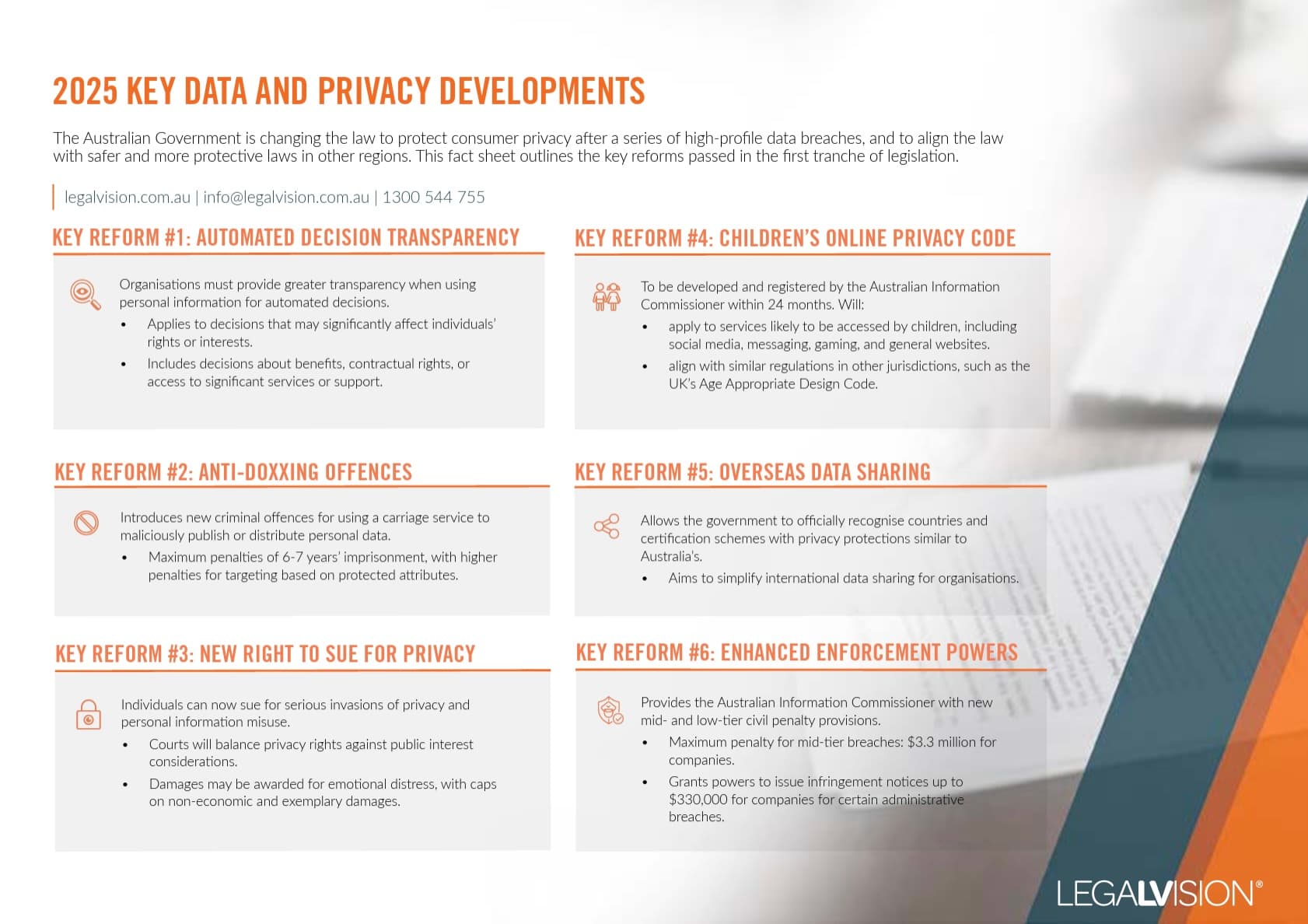On this page
As a developer selling an app through Atlassian’s online marketplace, you would have agreed to the Atlassian Vendor Agreement and the Marketplace Terms of Use before listing any apps on their marketplace. On 31 March 2019, the Vendor Agreement and Terms of Use changed. One of the changes means that you need an end-user licence agreement (EULA) between yourself and the end users of your app. Otherwise, Atlassian can delist your app. Previously, Atlassian had included a standard EULA in its Terms of Use. This article will explain what you need to include in an EULA if you wish to sell on Atlassian’s online marketplace.
How Does an EULA Work?
An EULA is an agreement between a software publisher and the end user about the use of the publisher’s software. Although every EULA is different, most EULAs cover:
- intellectual property (IP) ownership;
- prohibited use of software, such as reverse engineering the software or using data mining; and
- how your business uses personal information from end users.
Before 31 March 2019, your prospective users agreed to Atlassian’s standard terms when buying apps, as the Terms of Use apply to their use of the marketplace. However, as the standard template is no longer available, you will need your users to agree to an EULA. Failure to do so risks you losing protections for your software, such as:
- IP ownership;
- prohibited uses; and
- limits on authorised users.
Why You Need an EULA
Atlassian’s terms require you to upload your own EULA before you can sell your app on its marketplace. This means you will need to get a tailored EULA that protects your app and your business from unwanted risks. The new EULA should contain key clauses, such as:
- IP ownership;
- platform licence
- prohibited uses; and
- privacy.
1. IP Ownership
Your tailored EULA should protect your app from any users claiming unwanted ownership over your product. Make it clear that IP ownership belongs to you. If your software uses licensed software as part of its make-up, extend the ownership of IP to your licensors (people who have licensed their software to you). Furthermore, you should emphasise that using the app does not mean the end user owns the app.
2. Platform Licence
The terms of your EULA should grant users a platform licence so that they can use your platform. This is similar to granting users a pass to enjoy the features and functions of your platform. However, it does not grant the user any ownership of the platform.

This factsheet outlines the Australian Government’s strengthened consumer privacy laws in 2025 following major data breaches and their alignment with global standards.
3. Prohibited Use
With a tailored EULA, you can cover a broader range of prohibited uses for your app. Your prohibited use list should be comprehensive to protect your software from misuse. For example, you can state that the user must not:
- use the software for illegal means or in any way that breaks any applicable laws;
- use any method to attempt to circumvent or disable the software or its features;
- try to modify, copy, adapt or reproduce the software except when necessary to operate the software properly;
- try to decompile, disassemble, reverse engineer or use other methods to obtain the software’s source code;
- distribute, restrict, sell, rent, lease, sub-license, transfer, publish or disclose the software to any third-party unless you explicitly permit one or more of these actions in the EULA;
- remove or alter any IP assets such as trade marks, logos, copyright, as well as legends, symbols or labels connected to the software;
- use the software to infringe on third-party IP rights, such as copyrights, trade secrets and patents;
- try to undermine the security or integrity of computer systems owned by yourself or a third-party; or
- misuse the software in any way to stop the app from functioning properly or stop other users from using the app.
4. Privacy
Your EULA should cover your privacy obligations so that users know you can manage their personal information (PI) properly. The PI may come from Atlassian’s database or from how you monitor customer use of the app. Your EULA should contain a notice that tells users that you are collecting their PI and summarises how you will use the PI. However, the notice is not a substitute for a separate privacy policy.
Key Takeaways
When using the Atlassian marketplace, you must provide your own end-user licence agreement (EULA), as Atlassian does not provide a standard EULA. A tailored EULA means your app has better protection from user misuse. As part of the EULA, you can:
- set out clearly who owns the IP of the app;
- cover a wide range of prohibited uses;
- provide a licence to use the platform; and
- inform users about privacy obligations.
If you have any questions or need assistance in drafting an EULA, our experienced IT lawyers can assist as part of our LegalVision membership. For a low monthly fee, you will have unlimited access to lawyers to answer your questions and draft and review your documents. Call us today on 1300 544 755 or visit our membership page.
We appreciate your feedback – your submission has been successfully received.











